The first edition of Canile Dramatico took place in Parma from 17 to 19 May, an event dedicated to new generations of artists promoted and organized by the Federico Cornoni ETS Foundation. Three days of shows, meetings, workshops animated by young actors, actresses and operators, with a view to exchanging good practices, energies and artistic stimuli.
«Every beginning contains a magic that protects us and helps us live». These words by Herman Hesse accompany the birth of Federico Cornoni Foundation and in some way they describe the energy of the festival which saw its first edition in mid-May. Immersing yourself in the energetic flow of a theater festival is always an enthralling experience, but witnessing the birth of a new reality that is so heartfelt, so lively and urgent is an unprecedented and particularly touching opportunity.
Dramatic Kennel it is a party before a festival, a festival to celebrate, to give breathing space to a generation that feels abandoned by a theater system that is difficult to access, which proceeds in fits and starts, small opportunities with the under x license plate whose revenue lasts until the next project, at the next competition. Fresh from shared studies, the girls and boys protagonists of the three days in Parma are all artists between twenty and thirty years old, with complex and lively paths behind them and just as many in the pipeline. But what unites this generation of artists is a deeper, vital and indispensable bond to navigate the fickle waters of the Italian theater scenes and of our time in general: these artists are friends. Talking about the value of friendship in this context is difficult, because we risk easily evoking the all-Italian synonyms of exchange, opportunism, favoritism. Or the risk is to romanticize in a sentimental way that bond of solidarity, mutual aid and mutual recognition which is so fragile especially in the moment of affirmation, of the construction of an artistic and human identity of those who are beginning to appear in a system of rankings, points , victories and defeats. Furthermore, what makes the use of the category of friendship as the fulcrum of an artistic initiative slippery is the trivialization of intentions, rather than their ennoblement, due to who knows what original fault that corrupts our gaze.
In Parma, for this first edition of Canile Dramatico, those who have shared a path of studies, attempts, artistic discovery and want to draw strength from it, have gathered, recognizing in the eyes of others the same tenacity, the same stubborn commitment, telling their stories, also lending themselves to roles far from their own, to keep a light on. Who has shared a great loss, the kind that legitimizes one to close oneself off, to seek help only within oneself, to receive and no longer give. And instead he decides to reverse the flow, give back, make an incurable wound a source of vital energy for others, with a generosity that goes against the grain, to be cherished and protected. Thus the Federico Cornoni Foundation, born in January 2024 in the name of the young actor who died prematurely a year ago, desired by his parents Patrizia and Fausto Cornoni and the closest friends who animate it on the front line, has decided to create a shared and protected place, a “kennel” that welcomes, takes care of, listens to and gives back, always with lively irony, without rhetoric or sentimentality.

The implementation and sharing of good practices is one of the key points of the festival and passes from stage practice, to training up to fruition, in a continuous exchange of positions and views: everyone, when not busy on stage, is audience or among the staff. The first edition developed around the idea of meeting and triggering, with the prospect of broadening its radius and scope with future editions, as explained Rita Di Leo, actress, playwright and director as well as artistic director of the Cornoni Foundation. She moderates the first event of the festival, together with Alice Strazzi of the editorial team of Stratagems – Theatrical perspectivesdedicated to dramaturg Linda Dalisi. The key word immediately returns: the magic of the meeting, combined in Drama which gives the title to Dalisi’s volume dedicated to his work as a dramaturg on Edward Albee. The dialogue is framed by an unprecedented scenography made of highly colored sheets of paper dotted with lines, words and connections: the tangible and visually impactful restitution of a profession that is still little known in Italy, which supports the director but which starts from afar, an investigation as a detective, meticulous research into questions about the work and the author, picklocks so that the mysterious dark magic that is artistic creation is carried out on the scene.
In the two rooms of Theater in the Park the shows of the festival are staged, but the festival ranges across the various key theater venues in the city, such as the Theater Two which hosted a playwriting workshop held by Gabriele Di Luca and Europe Theatres which opened its spaces to the theater criticism laboratory curated by Stratagemmi. The shows hosted during the first two days of the festival have in common a strong tension towards the present, combined through particular attention to dramaturgical writing and collective and multi-purpose work.

FanniBanni’sa collective born in Modena and oriented towards experiments between writing and the performative body, presents the show which has already been a finalist for the 2021 Scenario award Snow White and the Seven Naziswritten and directed by Nicoletta Nobile. On stage Gabriele Anzaldi, Simone Baroni, Giorgia Iolanda Barsotti And Giorgia Favoti they propose a tragic birthday party that revisits the narrative of the Snow White fairy tale in light of the distortions of the present. In a lively and ruthless stage game, the dramaturgy rides and dismantles the stereotypes linked to gender roles, to the legacy of shared and misrepresented narratives, insisting on the cruelty that culture has tamed with the bright colors of products aimed at children. The narrative oscillates between the comic and the grotesque, at times diverting the focus of the themes, as if to let a further theme slip through between the lines, or perhaps an extreme consequence: the loss of references to right and wrong, good and bad .
Counterpass. The Door Trilogy is the show written and directed by Rita Di Leo, a project born from the author’s experience in the “Dramaturgy: advanced training in theatrical writing” project promoted by ERT. The dramaturgical development starts from the desire to reflect on prison sentences following the protests that swept through Italy last year in solidarity with the hunger strike of Alfredo Cospito, sentenced to 41bis for anarchist terrorism.

Anna Dall’Olio, Simone Baroni And Antonino Cicero Santalena, on a tripartite scene designed by light, give voice to three involuntary monologues. Everyone’s interlocutor is hidden behind a door and above all does not answer. They are three parental figures, three adults attempting a dialogue with their children. But if the first two are the exact representation of the forces of the state (a judge and a financier) and look from above, then with oppressive force and at the same time a pitiful gaze the exercises of freedom and the attempts at self-affirmation of the self-confined adolescent son room, the third is an ordinary, simple person, the only one to sit in front of the closed door, the only one to attempt a true dialogue on equal terms. He is a prison guard, a Sicilian who moved to Milan, whose pragmatism simplifies his thinking by letting doubt in and paving the way for a contamination of glances between increasingly distant generations. Even in this case, the thematic orbit seems to escape from the declared route – the reflection on the methods and effectiveness of prison sentences – reaching the cumbersome trajectory of the lack of communication between generations of citizens in the chaos of pre-established roles. The three monologues are interspersed with the vocal interventions of an apparently service entity, which seems to want to guide the viewer, providing concrete circumstances to the elements mentioned by the characters, or adding details where they are missing, correcting the aim of certain information. This voice is that of the director and playwright herself, present on one side of the stage, next to the sound editor Lorenzo Donadei. A position on the margins, visible and invisible at the same time, which could gain greater weight in holding the three scores together.

The crossing of the first two days of the festival ends for those who write with Kalergi! The conspiracy of conspiraciesthe company’s first project Collective Firmament. Although fresh from its debut, the work proves to be skilfully developed and accomplished (the project saw the victory of the OFFline 2022 call by Ferrara Teatro OFF and the Theatrical Mass 2023 call). Drawing from the well-known conspiracy theory mistakenly associated with the figure of Count Kalergi, one of the first to imagine a European Community as a united entity immediately after the First World War, the dramaturgy plays on different narrative levels intersected with simple but effective scenic expedients. The first plot exploits the theory of ethnic substitution for a dystopian and original exploration, taking the beliefs of the conspiracy literally and entrusting its realization to a theater company. The parallel plan is that of the writing of the show itself, the imaginary biography of the playwright and the group of friends to whom he proposes it. The narrative game is entrusted to the effective and fresh interpretation of Carmelo Crisafulli, Luca D’Arrigo (also author), Martina Tinnirello And Giulia Trivero, who, not surprisingly, at an important point in the show, burst onto the scene with their first names. The writing continually overturns the point of view, allowing a thematic and emotional prism to emerge with a horizontal gaze: Kalergi! it tells how at the basis of every conspiracy theory there is the interest of those who support it and the understandable fragility of those who espouse it, but it also reveals how behind every ideal there is the difficulty of really fighting to defend it; finally, how difficult and delicate it can be to maintain the same clear distance between reality and its representation.
Sabrina Fasanella
DRAMATIC KENNEL – Parma, 17-18-19 May 2024
A festival for the new generations
Project of the Federico Cornoni ETS Foundation
Created with the patronage and contribution of the Municipality of Parma and Confesercenti Parma
in collaboration with Fondazione Teatro Due, Solares Fondazione delle Arti, Europa Teatri
Thanks to ERT-Emilia Romagna Teatro Foundation










